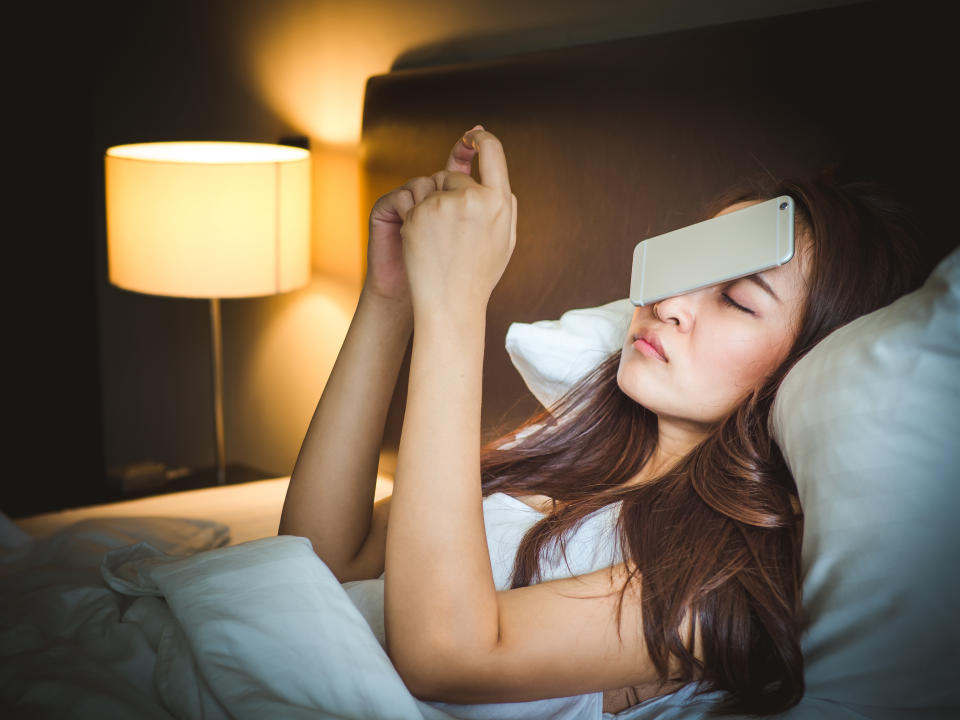Top tip to cut your daily stress — 'slow mornings'

Many of us have the same routine every morning. We wake up to an alarm, roll over and turn it off, then check our emails, WhatsApp, social media and everything else we missed while we were asleep.
Before we know it, we’ve spent too long scrolling in bed and we’re rushing around getting dressed, downing a coffee and racing to get to work on time.
According to a study by IDC research, around 80% of smartphone users check their phones within 15 minutes of waking up each morning. It can be difficult to break this habit, but as the Wall Street Journal reported, a growing number of people are turning to “slow mornings” to counter our frantic, technology-obsessed lives.
Essentially, a slow morning is about avoiding the stress of rushing and promoting a sense of calm and productivity which will hopefully last into your working day. Instead of waking up at the last possible minute and quickly checking emails, it involves getting up with time to spare to use as you please.
This might mean a leisurely phone-free breakfast, reading a chapter of your book or going for a short walk - anything, as long as you get some alone time without distraction.
READ MORE: How sleep deprivation is impacting our work
Even Amazon CEO Jeff Bezos is a fan of a low-key morning, telling Bloomberg: “I like to putter in the morning, so I like to read the newspaper, have coffee, have breakfast with my kids before they go to school. My puttering time is very important for me.”
“There are so many benefits to having a slow morning,” Kate Turner, director at Motivational Leadership, a leadership development consultancy.
“However, certainly the two key benefits are: You don’t trigger those horrible stress hormones and therefore are likely to be able to think more clearly, you allow the space to be present to yourself.”
Turner recommends writing in a journal every day before work. “This sets out your intentions for the day, plus - given it’s likely to be early morning when you write it - you will be able to capture your less conscious thought patterns too which will be uncluttered by any gremlins,” she says.
“Slow mornings allow you to work in a more deliberate state – one that you have thought through and that you are really prepared for.”
READ MORE: Five signs it’s time for a career change
It sounds great in theory, but getting up at 5am every day when you don’t actually have to seems impossible. But even getting up half an hour earlier can make a difference - and it’s a little more feasible to train yourself to do so.
“It is a challenge, but it’s definitely worth it,” Turner says. “Depending on the age of your kids, you could set your alarm 30 minutes early and (even from your bed) meditate.
“I would always suggest people try to stick to a routine and where possible wake up at the same time on a daily basis, this will avoid those stressful rushing moments that we all too often feel.”
Shazia Mustafa, cofounder of co-working space Third Door, says being prepared is key for a slow morning.
“I get organised the day before; iron and sort the clothes, pack the bags and write my to do list - both for work and family life,” she says. “Then it’s important to get up early. This way I can make the most of the slow morning and avoid rushing about.
“Routine is essential here. The aim is to try and get up at the same time every day and avoid those late wake ups and the rush that comes with it. I also take time for myself to eat a healthy breakfast and or go to the gym too,” Mustafa adds.
If you can’t stop yourself from checking your phone first thing, you may benefit from leaving your phone in another room and using a traditional alarm clock to wake up. That way, you can enjoy some peace and quiet without the temptation to scroll the morning away.
READ MORE: How to forget about work when the workday is finished
